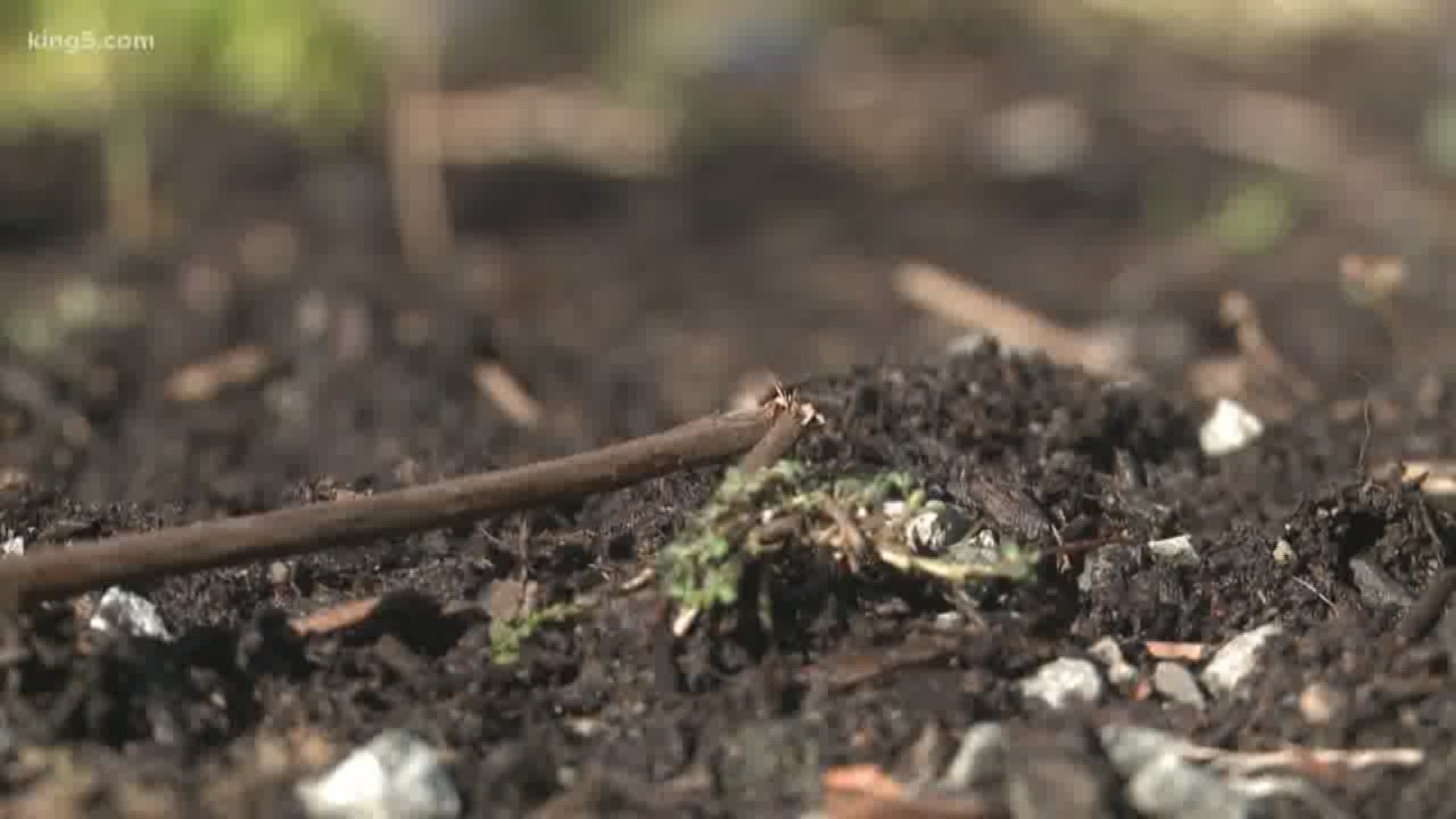If you want a less traditional burial, Katrina Spade wants to give it to you.
"Farmers all around the U.S. have done this for decades now, and it is technically a form of composting, taking natural materials like wood chips and straw and covering a body with them, and over time, with several weeks time, microbial activity breaks down the body into a soil," Spade explained.
Spade is the founder of Recompose, a company that wants to give people the choice to become soil when they die. The company worked with Washington State University to test its safety for environmental and human health. Six people donated their bodies for the study.
There are currently two bills making their way through the state legislature, SB 5001 and HB 1162. The bills would make it legal to compost human remains, which is called natural organic reduction, as well as use a practice called water cremation.
Spade says it's not just safe, but it also offers ecological benefits.
"With cremation, you have the burning of fossil fuels and emission of carbon and mercury particulates into the atmosphere. With conventional burial, there is quite a carbon footprint from the manufacturer and transport of caskets, grave liners, and then the upkeep of cemeteries," said Spade. "So, you have those two options, and if people want those options, absolutely they need to remain. But recomposition uses about an eighth of the energy of cremation and also has a significant carbon reduction thanks in part from the sequestration that happens of the materials during the process."
There has been some criticism from religious groups, questioning the practice. Supporters argue it's just as holy an option for them as traditional burial is for others.
"First of all, we are trying to add one more choice for Washington folks. So, it certainly is not about making anyone do anything they don't want. It is about giving another option for us to choose from. I will save that for some people. This option feels really spiritual, the ability to return to the earth after we've died and to nourish the land again its something that really resonates for people," Spade said.

